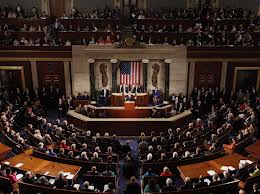This particular piece has been on my mind for some time and far too long neglected. In response to one of my earlier “Civics” posts, written in response to last November’s elections, a former colleague of mine asked, “Where are the true statesmen?”
The tempting response, of course, is “Good Question.” But I’ve been too long steeped in Classical and Christian traditions to let things go at that. In fact, one of my most valued mentors, a now-retired (and highly influential) Professor of Political Philosophy, has long-ago provided the answer to this question. He has graciously agreed to allow me to draw liberally from the well of his wisdom. (For the full experience, see “Statesmanship and the Crisis of Political Leadership in America” by Dr. John Gueguen).
Dr. Gueguen originally presented these ideas on statesmanship to the freshmen members entering the U. S. House of Representatives in 1981. His words ring true still, because they are rooted in truths that transcend time. “A statesman,” he writes, “is to a politician what a master is to a painter or a composer in the arts; he is what a true champion is to an athlete in sports.” A statesman’s aim is to “advance the common well-being of a people” through “custodial leadership” that seeks not to merely “administer affairs,” but rather to “transform them.”
True statesmanship is perhaps most difficult—but most direly needed—in the Constitutionally-based republican democracy we have in America. In a society which so highly values equality and freedom (two values which, in obvious ways, often compromise one another), it is difficult to lead decisively because one must not be seen as “an authority standing above equals.” Politicians thus find themselves inevitably motivated by self-interest or pandering to special interests. A statesman has the difficult task of persuading his or her fellow citizens that a position which must be pursued is not the necessarily the popular one, nor the pragmatic one, but simply the right one.
Dr. Gueguen cites nine qualities which are essential to such a democratic statesman.
- One must possess “firm and consistent principles of life, convictions [held with] absolute certainty and [regarding] which nothing could [force] compromise.”
- One must, however, also “be flexible on matters that can and should be compromised,” this ability being dependent upon “uncommon prudence,” “abundant common sense” and careful discernment regarding “how far to concede.”
- One must act “energetically, aggressively, and courageously” when times call for it, resisting the temptation toward discouragement in the face of resistance, remaining optimistically confident in [one’s] ability to bring about [the right results].”
- One must be “able to dominate circumstances, to rise above them, to spot problems when they are still far off and easier to divert.”
- One must not be “content simply to lead,” but rather must “lead . . . along the path [toward] the common good.” Self-interest must be sub-ordinated to the public interest, and “private agencies, the family, and the church [must be allowed] to exercise the leadership which belongs properly to them.”
- One must be “firmly grounded in classical liberal arts” in order to recognize “that universal human experience is a more valuable and objective guide” than one’s own or that of prevailing social trends and sentiments.
- One must be able to “come quickly to the heart of the matter, analyze cause-effect relationships, and reach accurate conclusions.”
- One must be personally rooted “at the deepest level of life” in faith in God, who provides “enlightenment beyond human resources” and gives authority to words and deeds which “transcend the worlds of political acumen.”
- One must possess “the humility that comes from true self-knowledge,” particularly in the awareness of one’s own “limitations and the limitations of the human condition.” This fundamental quality allows one “to learn from one’s mistakes” and avoid “the false attractions of utopian fantasies.”
As we prepare to hear our President deliver his second “State of the Union” address tonight, take note of his demeanor and measure his words in light of these nine qualities. But don’t stop there. Use them as a lens through which to view the words and actions of every elected official who represents you in national, state, and local offices.
“Where are the true statesmen?” I have faith that they are out there—though perhaps not as yet recognized or even elected. These are the standards we should be looking for in our leaders. They embody whatever hope we may hold for the future of this republican-democracy of ours. We must resist the path of apathy and insist that true statesmen lead us.

